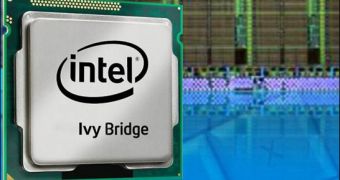The next generation of Macintosh computers soon to be equipped with the latest Intel processors is looking at a two-month delay, a new report says. The reason is Intel itself, apparently.
In what may prompt Apple to consider switching to a new processor architecture in the near future, Intel has confirmed a two-month delay for its initial batch of Ivy Bridge processors.
Sean Maloney, executive vice-president of Intel, and Chairman of Intel China, told the Financial Times that its 22nm Ivy Bridge processors were to be delayed until June. To be noted that this is not the first time Intel fails to meet an important deadline.
“Intel expects its next-generation microprocessors to go on sale eight to 10 weeks later than initially planned,” the paper quotes Maloney as saying, adding that “the start of sales of machines equipped with Ivy Bridge – the 22nm processor set to succeed Sandy Bridge in notebooks this year – had been pushed back from April.”
“I think maybe it’s June now,” Maloney said.
Certainly, “I think” is not the kind of answer Tim Cook wants to hear from a partner who may have single-handedly stripped Apple of its ability to post another record quarter.
The Cupertino, Calif. giant currently relies on Intel’s Sandy Bridge CPUs in most of its Macs, and the next obvious step is Ivy Bridge, but the next one after that may not include Intel anymore, should these delays continue to occur.
There is reason to believe Apple hasn’t refreshed its Mac Pro line of workstations particularly because of some issues with the chips. Granted, such talks also involved the video cards, which are produced by AMD.
And there have been a lot of rumors about Apple planning to move to a new architecture for the future of its notebook business. Of course, all this is just chatter for the time being, but it’s not science fiction either.
Apple isn’t the kind of company that sticks around for too long if you can’t deliver. And they’ve always pushed to do as much as possible in their own back yard (i.e. the A-series chip powering all its iDevices). Intel may be walking on thin ice here.

 14 DAY TRIAL //
14 DAY TRIAL //